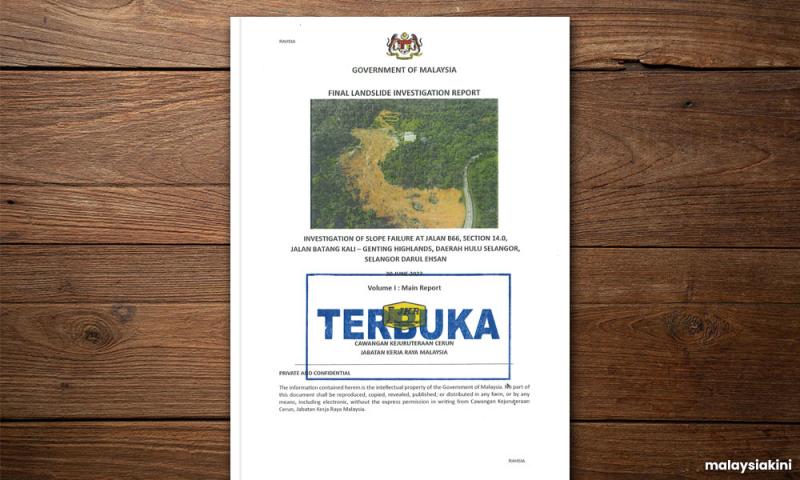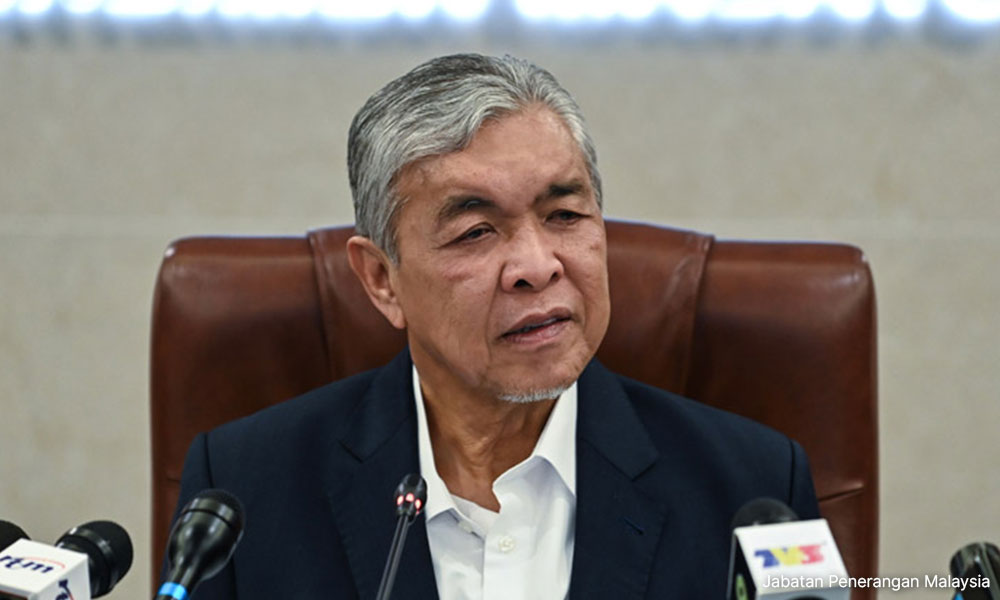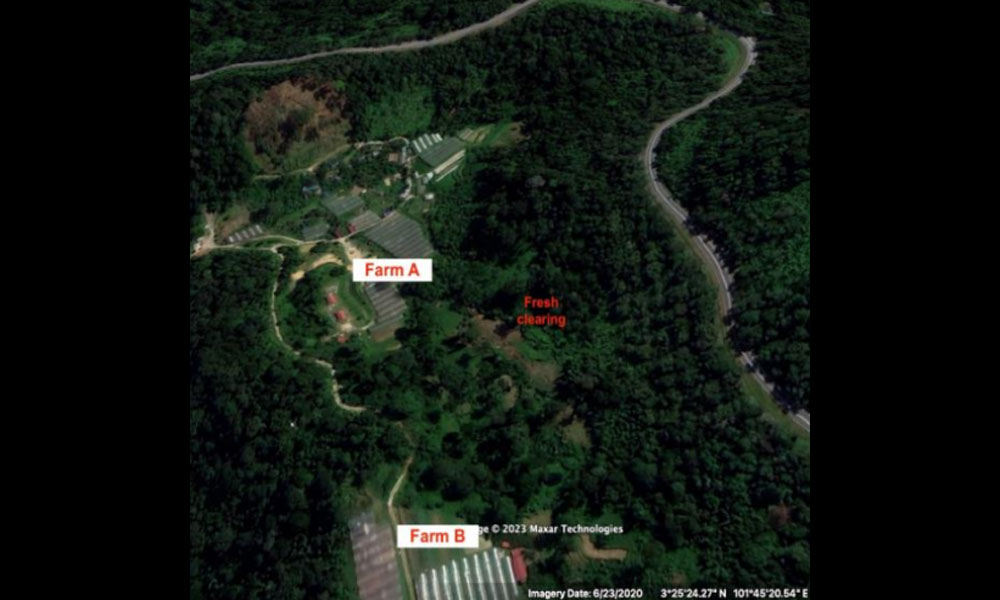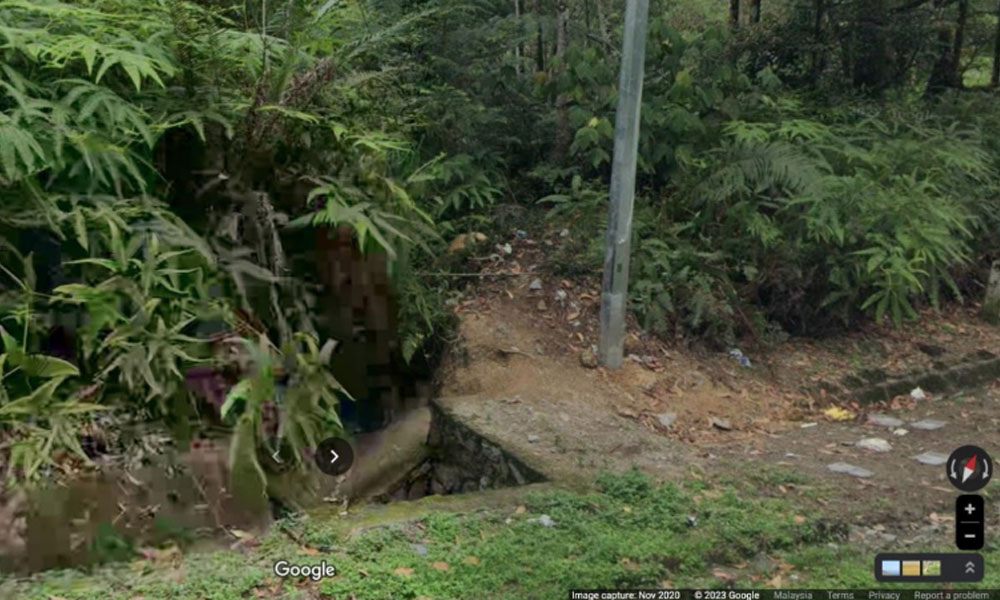
Andrew Sia
COMMENT | So it was an Act of God. Again. How many times have we heard this excuse for disasters?
The deadly landslide at Batang Kali, Selangor, in December 2022 was recently blamed on “heavy and persistent rainfall” and not human negligence.
This is according to “forensic analysis” of the incident, said Deputy Prime Minister Ahmad Zahid Hamidi, who chairs the Central Disaster Management Committee.
Though he didn’t use those words, Zahid is basically saying that the disaster was an Act of God, ie: “a natural event that cannot be controlled or prevented by humans”, as defined in the Cambridge Dictionary.
Copying Samy Vellu?
The person most famous for claiming that tragedies were “Acts of God” was none other than the late Sany Vellu, who was works minister for 23 years.
For example, in 2004, after yet another landslide along the steep slopes of the Karak Highway, he blamed “heavy rain” for it.
Yet the actual cause was that rainwater had accumulated into a pool on the hilltop and then burst. Why wasn’t this dealt with by the authorities earlier?
Is it because of that old joke that the Public Works Department or JKR actually stands for “Jangan Kerja Rajin” (Don’t Work Hard)?
The same excuse was trotted out by then Housing and Local Government Minister Ong Ka Chuan after the Bukit Antarabangsa landslide disaster of December 2008 in Kuala Lumpur.
This led Lim Kit Siang to chide Ong - don’t be a second Samy Vellu.
So, has Zahid picked up some bad habits (of blaming nature) from his former Barisan Nasional colleagues?
COMMENT | So it was an Act of God. Again. How many times have we heard this excuse for disasters?
The deadly landslide at Batang Kali, Selangor, in December 2022 was recently blamed on “heavy and persistent rainfall” and not human negligence.
This is according to “forensic analysis” of the incident, said Deputy Prime Minister Ahmad Zahid Hamidi, who chairs the Central Disaster Management Committee.
Though he didn’t use those words, Zahid is basically saying that the disaster was an Act of God, ie: “a natural event that cannot be controlled or prevented by humans”, as defined in the Cambridge Dictionary.
Copying Samy Vellu?
The person most famous for claiming that tragedies were “Acts of God” was none other than the late Sany Vellu, who was works minister for 23 years.
For example, in 2004, after yet another landslide along the steep slopes of the Karak Highway, he blamed “heavy rain” for it.
Yet the actual cause was that rainwater had accumulated into a pool on the hilltop and then burst. Why wasn’t this dealt with by the authorities earlier?
Is it because of that old joke that the Public Works Department or JKR actually stands for “Jangan Kerja Rajin” (Don’t Work Hard)?
The same excuse was trotted out by then Housing and Local Government Minister Ong Ka Chuan after the Bukit Antarabangsa landslide disaster of December 2008 in Kuala Lumpur.
This led Lim Kit Siang to chide Ong - don’t be a second Samy Vellu.
So, has Zahid picked up some bad habits (of blaming nature) from his former Barisan Nasional colleagues?

DPM Ahmad Zahid Hamidi
Fast forward to the horrendous floods of December 2021 at Taman Sri Muda, Shah Alam. When residents sued the federal government, the official reply was… yup, you guessed it, yet another “Act of God” – heavy rains and high tides.
No, you cannot recycle that tired old excuse, replied the residents. After the first big “unexpected” flood of 1995, a second one happened in 1996, which was dismissed as a “once in 100 years” occurrence.
Since then, there have been repeated deluges, which means that the real culprit is inadequate government infrastructure, pointed out the residents.
Can JKR clear JKR?
Now let’s look at the Batang Kali landslide. The forensic report on it claimed there were no anthropogenic (human) activities in the area.
Yet Dr Mohamed Rafick Khan wrote in Malaysiakini that this was not true. Why? Because satellite photos showed that a large area had been cleared of its original forest.
This area was below the state road between Batang Kali and Genting Highlands. Did the clearing weaken the slope?
Fast forward to the horrendous floods of December 2021 at Taman Sri Muda, Shah Alam. When residents sued the federal government, the official reply was… yup, you guessed it, yet another “Act of God” – heavy rains and high tides.
No, you cannot recycle that tired old excuse, replied the residents. After the first big “unexpected” flood of 1995, a second one happened in 1996, which was dismissed as a “once in 100 years” occurrence.
Since then, there have been repeated deluges, which means that the real culprit is inadequate government infrastructure, pointed out the residents.
Can JKR clear JKR?
Now let’s look at the Batang Kali landslide. The forensic report on it claimed there were no anthropogenic (human) activities in the area.
Yet Dr Mohamed Rafick Khan wrote in Malaysiakini that this was not true. Why? Because satellite photos showed that a large area had been cleared of its original forest.
This area was below the state road between Batang Kali and Genting Highlands. Did the clearing weaken the slope?

The whole area is hilly and it rained everywhere. But why did the landslide occur above the farm where the campers were? And not elsewhere? This was not addressed in the report.
He added that there was an unusual sump where water pooled and it appeared to be damaged by some TNB lighting installations.
“This probably explains why this particular spot gave away and not the other slopes in that area,” wrote Rafick, who said he has “first-hand experience” of the 2008 Bukit Antarabangsa landslide.
He is not the only person who has scrutinised the disaster.
Universiti Sains Malaysia’s Mastura Azmi, a geotechnical engineering lecturer who specialises in slope engineering, reportedly told Free Malaysia Today that poorly maintained drains along the Batang Kali-Genting Highlands state road could be the likely culprit behind the landslide.
Good drains would safely funnel rainwater away but blocked or broken drains would lead to water accumulating in the soil, thus weakening the slope.
Mastura called for an urgent review of drainage capacity and maintenance on all hillside roads to avoid a repeat of the tragedy.
But Malaysian local authorities lack the expertise needed to monitor and manage hill slopes said Nor Shahidah Mohd Nazer, a lecturer at Universiti Kebangsaan Malaysia.
“Seventy percent (of local authorities) did not have a database for the collection of information, 81 percent did not carry out slope maintenance, and 41 percent were not aware of the existing guidelines related to slopes,” she said.

So if local authorities can’t do it, who can? In reality, both federal and state roads are under the supervision of JKR. This is acknowledged on their official website itself.
A special committee was formed to investigate the Batang Kali tragedy and it was led by JKR’s Slope Engineering Branch (with help from four other government departments).
Surely, they are the ones who can and should monitor hill slopes?
But wait, they are also the ones who now declare (in the forensic report) that it was God (ie: heavy rain) that was responsible for the landslide!
Was there proper maintenance? Or was it Jangan Kerja Rajin? We don’t know. Maybe the JKR-led committee is right and the three other experts mentioned in this article are wrong.
But still, it doesn’t seem quite right that a JKR-led body should proclaim that JKR is free from blame. Surely, it would’ve inspired more public confidence if the investigation had been done by independent experts. Or by a Royal Commission of Inquiry.
We already know that climate change and extreme weather are real, so we had better take proactive steps to deal with it. But sorry to say, Malaysia is not exactly well known for a good maintenance or planning culture.
Instead, we usually wait for hell to break loose and then blame “nature” or “Acts of God” for it. This game to avoid responsibility has been repeated too often over the years.
It should have no place in a “civilised” Madani government.
ANDREW SIA is a veteran journalist who likes teh tarik khau kurang manis. You are welcome to give him ideas to brew at tehtarik@gmail.com

No comments:
Post a Comment